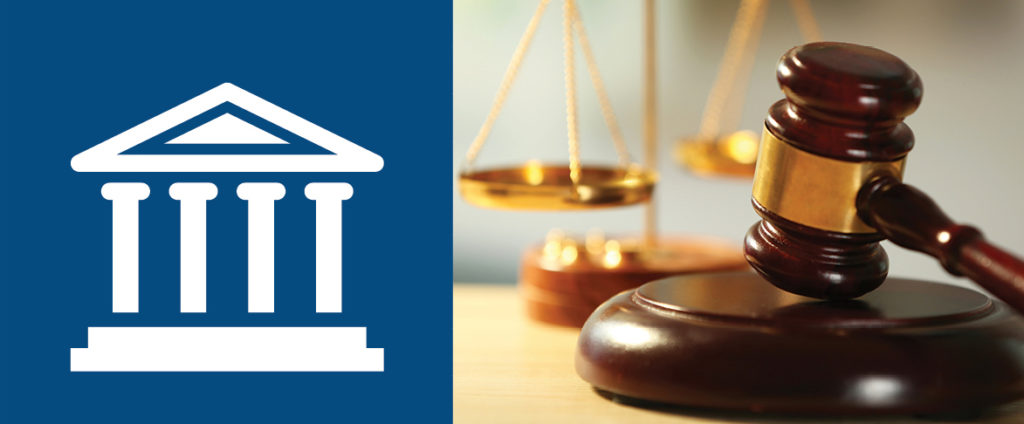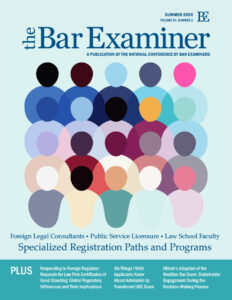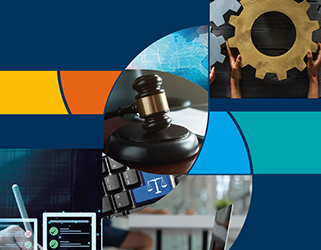This article originally appeared in The Bar Examiner print edition, Spring 2023 (Vol. 92, No. 1), pp. 67–68.
Bar Examination
Accommodations; technical issues; due process
The Supreme Court of Delaware denied the appeal of an examinee’s request for a Board hearing to challenge her exam score and request for admission to the bar, finding that the Board’s grading adjustment due to remote applicant’s software issues experienced during exam were not arbitrary or unfair and that the Court would not waive its admission requirements.
Some examinees who sat for the 2021 Delaware bar exam, which was administered remotely due to the COVID-19 pandemic, experienced technical problems that required one or more computer restarts. In response, the Delaware Board of Bar Examiners enlisted a psychometrician to formulate a possible grading adjustment in the interest of fairness. Examinees who experienced such technical issues received a score increase.
Marla Matrice Murphy received such an increase. She did not earn a passing exam score. Previously, Murphy had petitioned the Board for a hearing to challenge her exam score and address her request for admission to the bar. In her request for a hearing, Murphy “argued that the Board’s grade adjustments in response to software difficulties were arbitrary and capricious, and the Board did not adequately execute her approved testing accommodations. Murphy asked the Board to bypass the Board’s and [the Supreme Court’s] admission requirements and grant her admission to the Delaware Bar.” The Board denied a hearing based on its rules requiring that it treat all scores as final and its inability to bypass requirements for admission to the bar. Murphy appealed to the Supreme Court of Delaware.
The appeal raised substantially the same issues, with the additional claim, in the Supreme Court’s language, that “the Board deprived her of due process by not holding an evidentiary hearing regarding her allegedly deficient accommodations and request for a further scoring adjustment.” First, Murphy stated that because her technical issues occurred during an exam portion that she expected to do well on, a score increase was arbitrary relative to adjustments elsewhere. The Court disagreed, finding that “the Board was precise and careful in its remedy [including by enlisting the aid of a psychometrician], addressing a significant issue for applicants that could have undermined the purposes of the Bar Exam—testing for minimal competence.” Next, Murphy made several claims: (1) she was not given a paper copy of the exam (she did not request one; thus the Court disregarded this); and (2) her approved testing accommodations were not fully executed. The only accommodation denied was “stop the clock” breaks; those granted included time extension, use of scratch paper and pencil, and a private room. Despite Murphy’s allegations regarding the accommodations—the proctor being distractingly loud, and her being unable to use scratch paper for exam’s entirety—the Court found that with no prior Board hearing, there was no record to review. The due process claim invokes this lack of a record that could allow the Court to grant relief. But Murphy recognized that admission to the Delaware Bar, the relief she sought, “‘was outside of their grant of authority from the Court.’ Thus, a hearing served no purpose.”
Taking all the above into account, Murphy asked the Court to admit her to the Delaware Bar, relying on Petition of Golby and In re Petition of Rubenstein. First, the Court stated that Golby has set no precedent beyond the circumstances specific to that case. In Rubenstein, the examinee had passed both the multiple-choice and essay portions, but in different administrations. In that case, “the Court waived the requirement that an applicant pass both sections in a single sitting but did not waive the requirement that Rubenstein demonstrate minimum competence to practice law by passing the Bar Exam.” The Court finds those “extreme or unusual circumstances are not present here,” noting also that exam scoring methodology has shifted significantly since those cases; instead of separate passing scores for each section, there is now one for the entire exam. Likewise, the Board’s rules were amended in 1999, after Golby and Rubenstein, to allow unlimited exam attempts, but challenges to exam scores were prohibited. The Court’s rules were amended that same year to “prohibit review of the Board’s decisions on individual grades.” With this in mind, neither the Board nor Court will waive admission requirements.
See In re Petition of Marla Matrice Murphy, Case No. 398, 2021 (DE 2022)
Contact us to request a pdf file of the original article as it appeared in the print edition.








